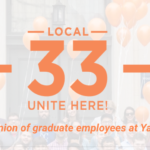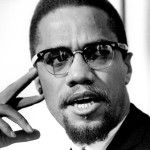Today I turn 18. As always, this birthday has prompted self-reflection, perhaps even more so as I sit quarantined in Saybrook College at Yale. I cannot help but wonder what life would have been like if this pandemic had never happened. It is quite likely I would have ended up at a different university. I may have never discovered writing as an outlet for expression. I might have found myself on an invigorating, and much needed, gap year, traveling the world and exploring new horizons.
Or, quite possibly, I could have died during my last summer in Chicago, either a victim of police brutality or gang violence.
And yet here I am. The same cannot be said for the hundreds of thousands who have died of COVID-19, or the countless Black lives that perished at the hands of others. In that sense, to celebrate a birthday would be profoundly insensitive. At the same time, this day has allowed me to place my proverbial “transition to adulthood” into a personal and national context.
At an early age, I resolved to use my life to help others. Though my passions and interests have shifted with time, I have held steadfast in my commitment to service. But back when I determined the general direction of my life, I had no inkling of my future at an Ivy League institution, perhaps because my life plans were always created in the vaguest sense.
Caleb from one decade ago was unable to conceive of the year 2020, and though acutely aware of that fact, he trusted in his future self and was content. Now older, I have become more introspective and thoughtful, and thus contentment became harder to find. Life has increasingly become characterized by moral trade-offs and irreconcilable personal beliefs, which has created tension within me and complicated my devotion to service. My very presence at Yale begs the question of how much I value community over personal achievement. Do I deserve to be here? Yes. Am I abandoning my community by being here? I don’t know. It is difficult to say if the Caleb from 2010 would be proud of what I’ve accomplished, and perhaps it is best that I never know.
Instead, I turn outward and see a world crumbling around me. Demagoguery, death, and destruction have a stranglehold on our nation. Fear, anger, and reductionism have replaced kindness, compassion, and consideration. America is devolving into a state driven by cult-like factions and absolutism on both sides of the political aisle. The crises of our time, racial injustice and climate change, have only split public consensus and pushed Americans further apart. Unity and shared values are slipping away and with them go our capacity to progress as a nation. The seeds of disunion have been growing for a long time, lying just below the surface– ready to sprout. Today’s political climate has allowed them to blossom into terrible weeds, and thus I possess a deep fear of the future.
But as I consider my place at Yale I realize that my education has given me the opportunity to work against those weeds. I now have access to the resources of an institution older than the nation itself and the freedom to leverage those resources to my own ends. With that comes a question of how to use the university’s power to resolve a fundamental break in public discourse and return the country to the tenets of liberal society. My association with Yale also creates a moral quandary. Should I use this institution, in spite all of its faults, to pursue righteous ends? Moreover, should I be the one to resolve the nation’s issues because of my new-found stature as a Yale student?
My newly minted adulthood has made these questions no less difficult to answer. Nevertheless, I find solace in the fact that the future is not yet decided and that as Yalies we all have the opportunity to contribute to how it is shaped.
Caleb Dunson ‘ 24


